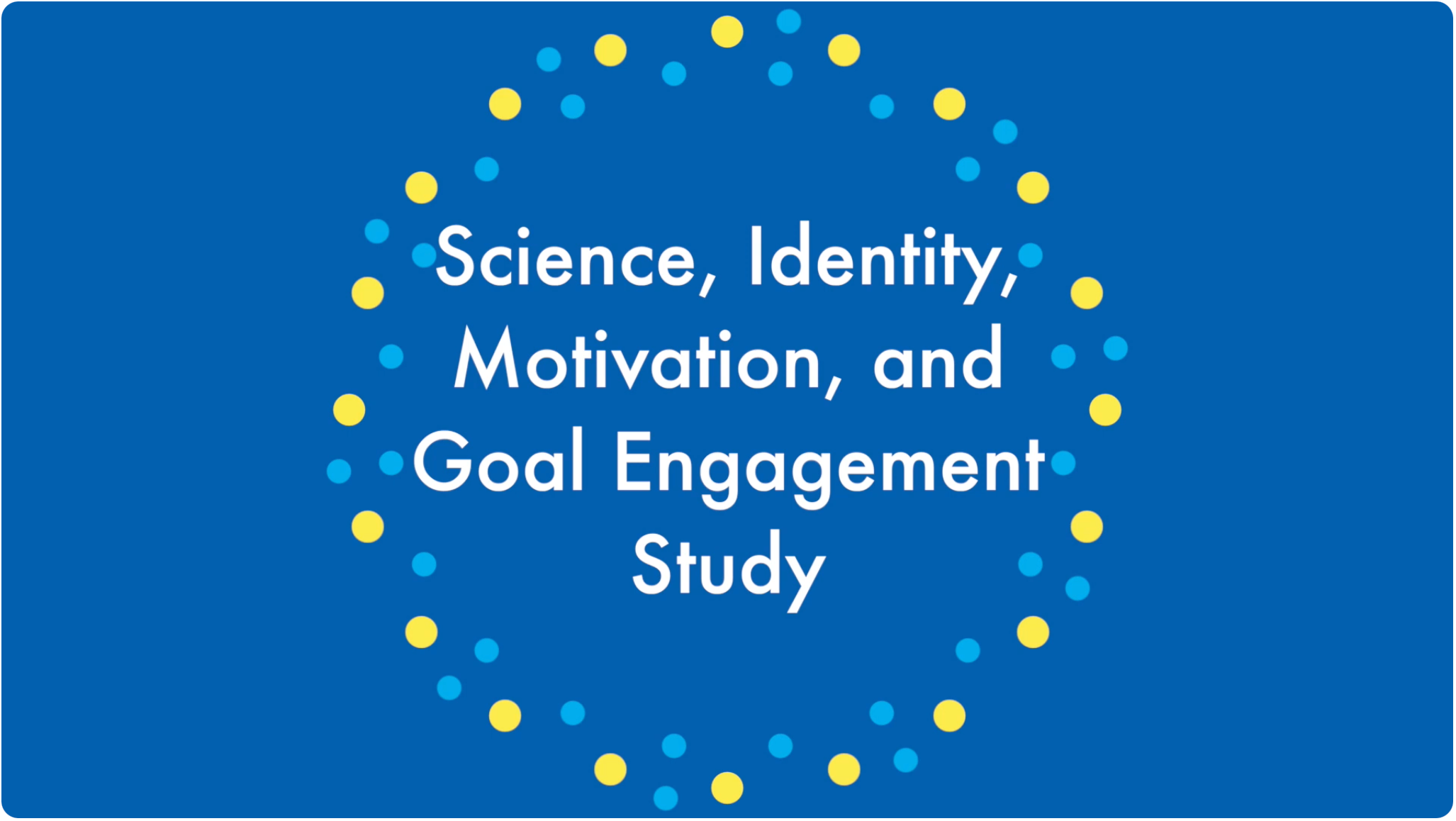Science IMAGE Study
Center for Research in Mathematics and Science Education
San Diego
About
Science Identity, Motivation, and Goal Engagement (IMAGE) Study
Official name: Understanding the role of cultural and career purpose orientations in underrepresented minority science student success.
PI: Dustin Thoman, San Diego State University.
Co-PI: Paul Buonora, California State University, Long Beach.
Funding: NSF Grants DRL-1420271 and DRL-1622991 (2014-2018).
The overall aim of this project was to examine whether the fit between undergraduate URM students’ communal cultural orientations and their perceptions of science education and careers influence URM science students’ engagement in science courses and interest in pursuing a science career, particularly during foundational science courses when URM attrition is a major problem. For this study we used a 3-phase project design involving (1) interviews and focus groups with freshmen students, (2) a longitudinal survey study and (3) a randomized experimental classroom study. We examined initial perceptions of cultural and science career purpose congruence for freshmen URM science majors through focus groups, interviews, and surveys. A longitudinal survey to examine whether these perceptions change over time, during enrollment in foundational science courses, and whether these perceptions influence course engagement, science identity, and science career interest. Finally, a randomized experimental classroom study tested whether course activities designed to help make connections between what they are learning in foundational courses and communal purpose orientations can increase URM students’ course engagement, science identity, and science career interest.
We investigated whether the reasons why URM students pursue certain careers, or what they hope to gain from their careers, is culturally influenced by a career purpose orientation that highly values contributing to society and giving back to the community through one’s work. When students fail to see connections between this communal purpose orientation and what they are learning about science (and science careers) through foundational courses, URM students are likely to experience greater incongruity between their cultural and science identities. Thus, we hypothesized that URM students will experience greater motivated engagement in their foundational courses, will develop a stronger science identity, and will report greater interest in science careers when they make connections between what they are learning in science classes to how it can be used to benefit the communities to which they feel connected.
In the first year of our longitudinal study, results have demonstrated that minority students (URMs) who entered their freshman year with a greater belief that science can be used to help their communities identified with scientists more strongly over time. The findings from this study are unique in addressing the importance of undergraduate students’ initial perceptions about science for the development of a strong identity as a scientist, which is important for efforts to broaden science participation.
Media

